The Business Books of America
A snapshot in time of the business section at an airport bookstore.
(Note: Because of length limits in email clients, you may need to click through to the online version to see the entire newsletter.)
This past week, for the first time since March 2020, I found myself traveling on a plane for “business” in order to deliver a keynote talk at the Penn State Writer’s Conference.
Waiting to takeoff on the first leg from Charleston to Philadelphia, I heard one side of the following phone conversation from the row in front of me.
Hey, yeah, just wanted to touch base before I take off and let you know that we can go ahead and go forward at 6-percent interest, but you have to also know that this means putting the Baxter tranche ahead of the Lewis tranche.1
Short period of silence.
I don’t know what to tell you. If you want the money, these are the terms.
Even shorter period of silence.
It’s our money (name redacted). Lots of people want our money right now. Gotta go, they’re closing the door.
It reminded me of this must read, classic McSweeney’s piece by Wendi Aarons, which starts like this.
The guy in the row in front of me wasn’t yelling. He seemed quite calm, actually, maybe because he was the guy with the money, rather than the guy who wanted the money.
He was very comfortable using the word “tranche,” which I understood from context, but which I also don’t know that I’d ever heard before. I wondered what it was like to control so much money that you divide it up into segments called tranches that you can move around like puzzle pieces.
I looked it up and saw that only 12% of airline passengers fly for business reasons, though that 12% apparently accounts for a majority of airline revenue. Because of the travel, I wasn’t sure if I’d have time to write the newsletter this week, but provoked by overhearing that guy’s business conversation, and reflecting on my previous post about the most harmful airport books of all-time as I changed planes in Philadelphia, I decided to take a picture of the business books at the airport bookstore, just to see what I could see.
Business section of airport bookstore: 10/12/2022
Who wants to be a millionaire? (Everyone.)
Perhaps this is an obvious thing to say, but it strikes me that a significant proportion of business books are actually just self-help books. For example, all of these books are to help you become a millionaire.
It’s interesting to me that these books are still touting the best path to be a millionaire, with inflation and all. At what point do they start sounding out of touch with the appropriate level of mass greed of the day, like Dr. Evil?
Good leadership is just a good book (or four) away.
These are to help you be a better boss, or in the preferred parlance of business-speak to become a superior “leader.
We are assured by these books that being an effective boss is all about knowing the “simple truths” that “unleash greatness” because “when they win, you win.”
What’s not to like?
At the same time, like a lot of other self-help books, these things are self-evidently B.S. If the truths are simple, why do we need so many books about them? If your plan for becoming a millionaire or a better boss or visionary leader is so foolproof, why do we need so many different books touting the same things?
As with personal self-help books, business self-help books are predicated on fostering the illusion of the efficacy of personal agency against collective forces that may stand in your way. These books are no different from The Secret, and yet the authors and their ideas are taken very seriously, getting paid six figures to go deliver these simple insights to Fortune 500 companies, or think tank retreats for rich people (like the Aspen Ideas Festival) that try to conflate having lots of money with being cultured, and societally engaged.
Don’t get me wrong, I’m a fan of practicing personal agency, but part of an effective practice of personal agency is to understand the limits of agency in the face of systemic forces.
The theme of my talk at Penn State was on using a particular pedagogical approach in order to get students “engaged” with writing, and agency (for both students and their teachers) is central to my philosophy.
But at the same time, whenever I give these talks, I emphasize the existing structural barriers to achieving the kind of ideal approach I discuss. As I always say, we know a lot about how to help students improve their writing, but the conditions under which students learn and teachers teach are the biggest barrier to providing this help.
For example, we know that one-on-one conferences with students are incredibly important. Unfortunately, the vast majority of writing teachers have far too many students to give them the individualized attention they need and deserve.
The author of that Leadership Two Words at a Time book, Bill Treasurer, calls himself the “Chief Encouragement Officer.” He provides “two word nuggets” that will help you be better leader. For this, I’m guessing he makes millions of dollars a year as an author/speaker/consultant.
Personally, I’d be suspicious of any business that gives a dime to these consultants, but maybe I just don’t understand business.
Believing this stuff just seems to be a form of brain rot. This past week the Carolina Panthers fired their head coach, Matt Rhule, who went 11 and 27 during his tenure. Journalists got ahold of his personal operating manual, which he called “The Way of the Panther.”
It included this passage.
How’s that for coach as “Chief Encouragement Officer?” His own staffers mocked him behind his back.
Success at professional football, and everything else for that matter, is about more than selling a brand, but you wouldn’t really know that from the bookstore business book section.
Being complicit in the deaths of millions is no barrier to being a leadership guru.
Who doesn’t want advice on leadership from a war criminal?
Have trouble thinking good? We’ve got a book (or five) for that.
All of these books suggest that success in business as an investor, an entrepreneur, a boss/leader is straightforward, which suggests that any failure to become wealthy is a matter of personal defect. Look, it says it right there on the book, it’s simple!
Where is the popular business book on the role of blind luck, or of being born into a family of wealth and/or connections, as was the case with some of our richest people: Bill Gates, Jeff Bezos, Elon Musk Mark Zuckerberg, etc…?
Where is the book on the importance of abandoning moral and ethical considerations in pursuit profit as an important ingredient for business success?
Actually, it’s there on the second row from the top, first on the left.
When McKinsey Comes to Town: The Hidden Influence of the World’s Most Powerful Consulting Firm is a kind of expose of the modus operandi of a company that has both made others unfathomably rich, and enriched the principals and employees of the company in the process.
McKinsey was at the heart of the opioid epidemic, advising Purdue Pharma how to sell even more oxycontin, even as the evidence of a burgeoning crisis became apparent. They’ve advised genocidal regimes. They ginned up a bunch of B.S. research arguing that CEOs were underpaid and were the leaders of the outsourcing of jobs to India.
Most (though not all) of this was perfectly legal, the American way of doing business.
After my morning keynote, we had an afternoon roundtable where a bunch of people who teach writing mostly just talked shop about both the perpetual and new challenges of practicing this trade in today’s world.
These sessions can get a little grim, as the list of challenges piles up, and I always feel bad when the stuff I come to talk about engenders this kind of discussion, but what other choice is there than to acknowledge the truth of the matter?
At the very end, I acknowledged this dynamic, how hard the system was making the job for these fine folks, but then I had to acknowledge the truth, “But you guys all really like your work, right?”
Universal agreement, which was unsurprising, but is in itself complicated, because it is this like (or love) that mitigates the damage of the system, the individuals acting like shock absorbers against that harm trickling down to students, accepting that harm on themselves.
It’s noble…admirable, but also unsustainable, as I know from personal experience.
On the flight home, I wondered how much money might be in one of those tranches, and what kind of difference it might make to the people I’d spent the day with, and then I stopped because I didn’t want to get morose after having such a nice trip.
Links
In my Chicago Tribune column this week, I talk about how some folks are doing great work to bring more transparency to books and publishing, but also making sure that the public knows exactly how many copies each book sells is unlikely to be all that impactful.
The Post45 Data Collective whose work I write about in my column, have released another article examining how Black authors have been covered historically by the New York Times. It’s a fascinating look at how an important cultural gatekeeper will give time to a small handful of select Black authors, while casting the net much wider for white ones. Looks like structural bias to me.
I’m well aware of the joke about just reading Playboy for the articles, but in this case, it’s true, as Alexander Chee has written a remarkable tribute to Denis Johnson and the book I’ve given away more than any other in my entire life, Jesus’ Son.
Barnes & Noble has released their list of the best fiction books of the year. And it’s not even Halloween yet!
Not to brag, but also, to brag, I went five for five on the New York Times quiz about “Novels Set in the American South.
Recommendations
All books linked here are part of The Biblioracle Recommends bookshop at Bookshop.org. Affiliate income for purchases through the bookshop goes to Open Books in Chicago.
Affiliate income is $265.10 for the year.2
1. A Visit from the Goon Squad by Jennifer Egan
2. When We Cease to Understand the World by Benjamín Labatut.
3. Blindsight by Peter Watts
4. The Sense of an Ending by Julian Barnes
5. Echopraxia by Peter Watts
Brian - Brooklyn, NY
I love it when the universe provides me a list that matches up with a book I just read and am eager to start spreading the news about via word-of-mouth. Jonathan Dee is more know for sprawling examinations of communities via multi-character arcs - as in one of my favorites, The Locals - but with his new book Sugar Street, he zooms in on a single man on the run from himself and it was fast and riveting. I started it when my first flight took off and finished it before I arrived in State College.
Very excited to go finish a book I discovered in a used book store near the Penn State campus that I won’t talk more about because I already know I’ll be writing about it and its author is a future column or newsletter.
I hope the weather is fall appropriate wherever you are, unless you live in the Southern Hemisphere, because that would be weird.
JW
The Biblioracle
I’ve made up the names of the tranches just in case the real ones are meaningful in the wider world, but pretty close to verbatim.
I’ll match affiliate income up to 5% of annualized revenue for the newsletter, or $500, whichever is larger.




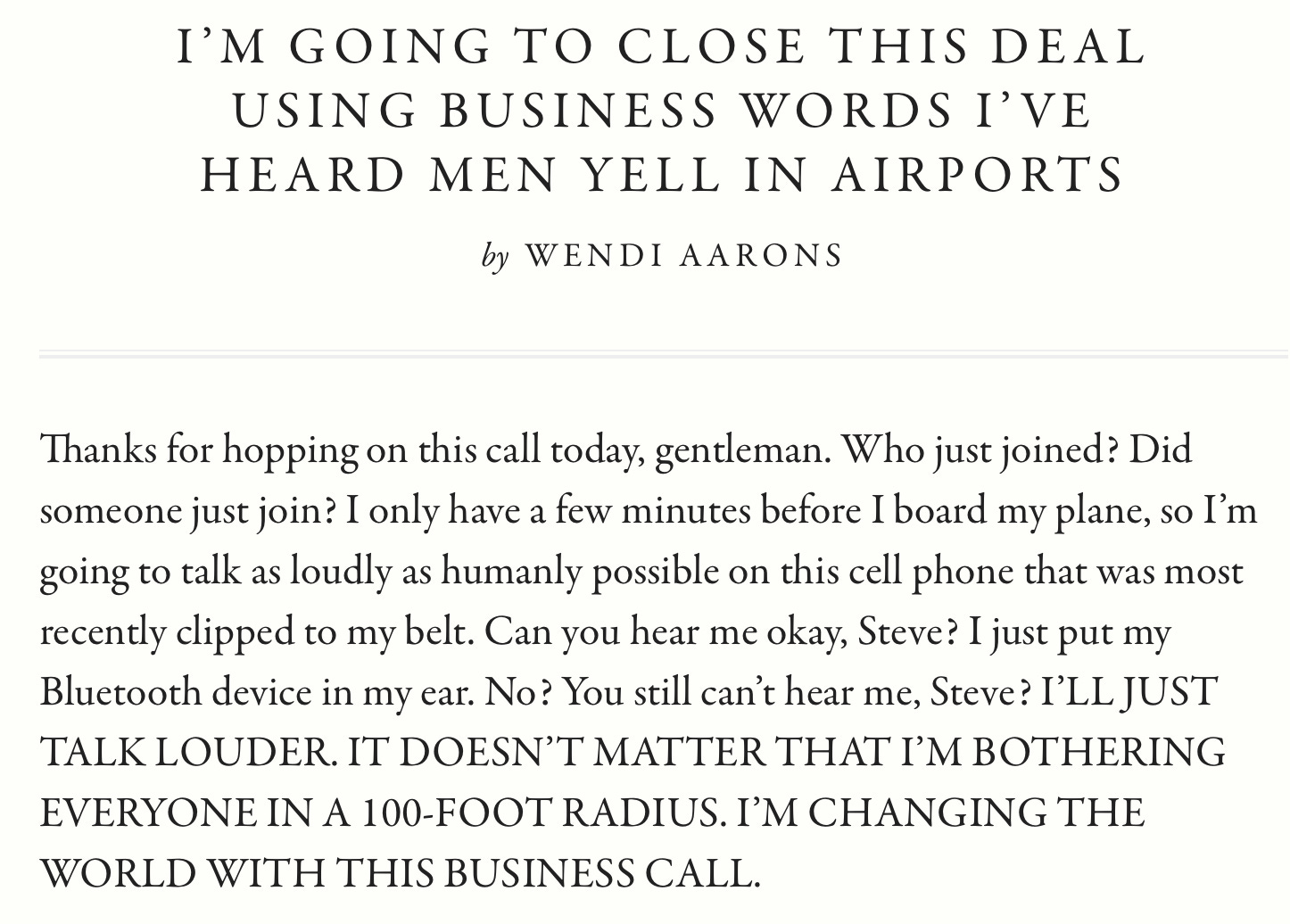
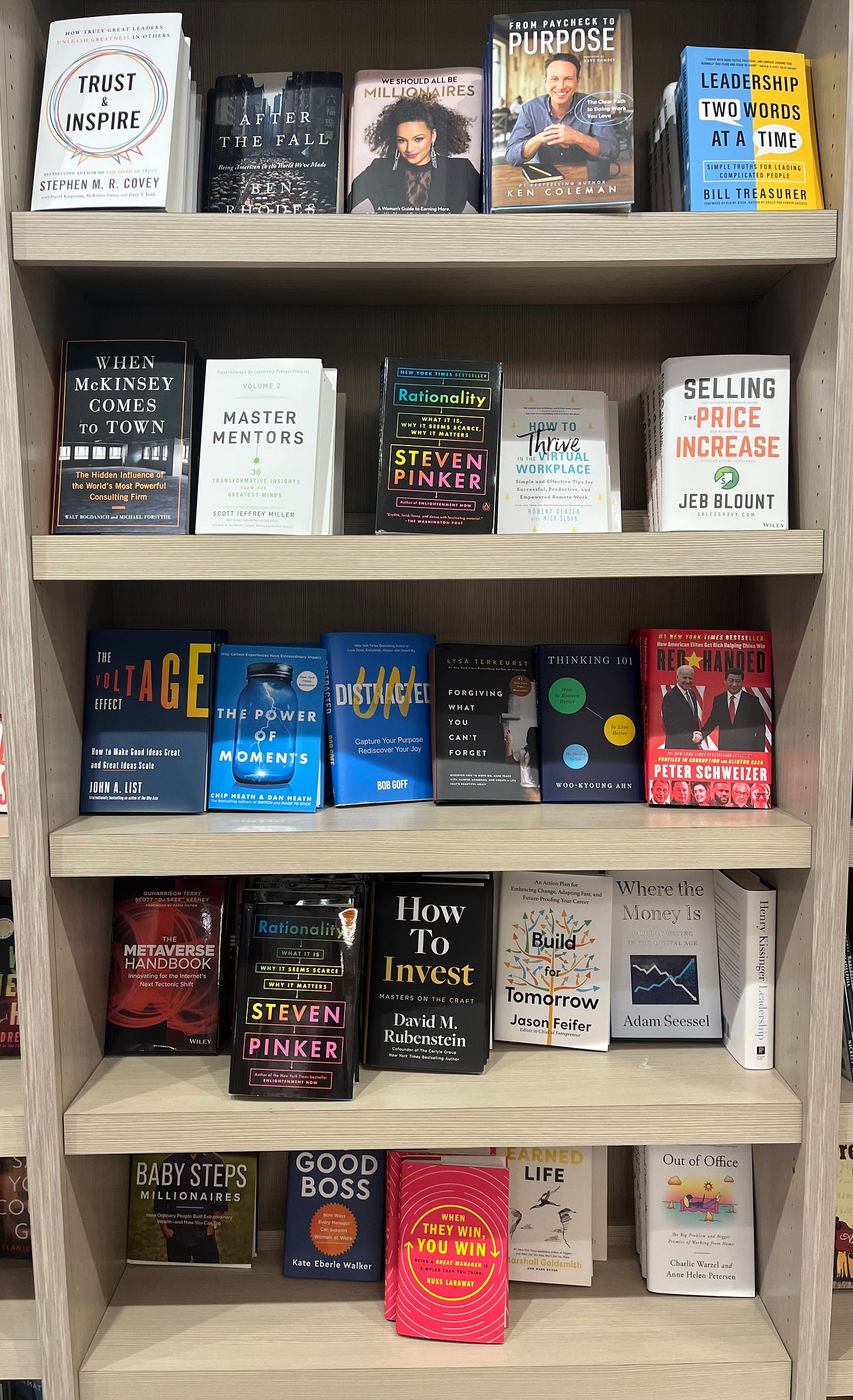




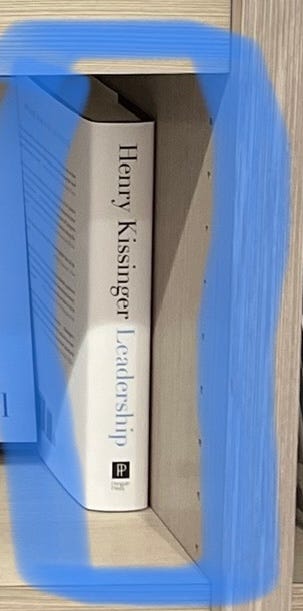
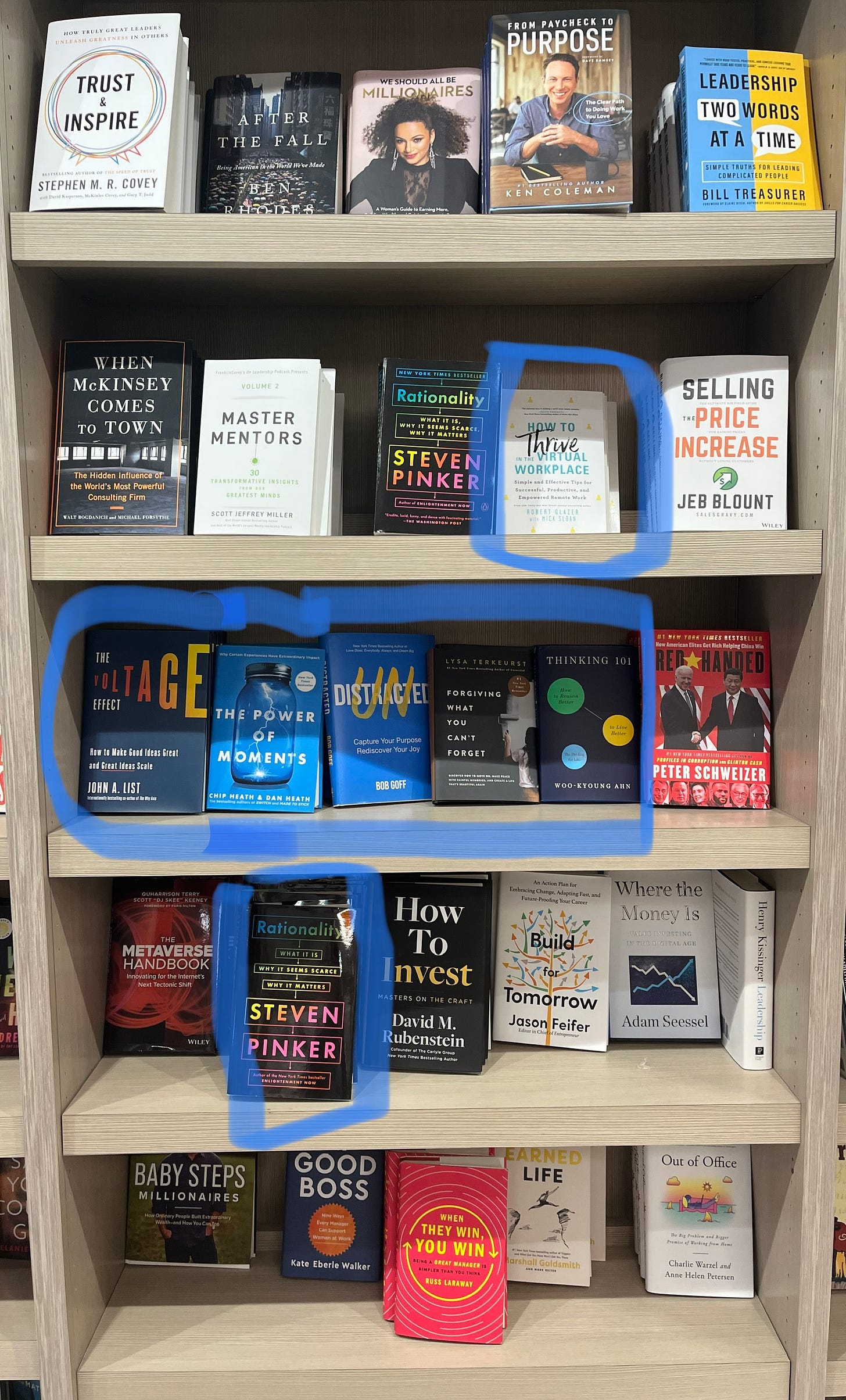
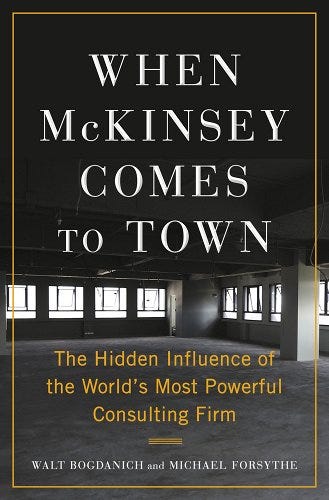
A very thought provoking piece. I sit on the board of a poverty relief non-profit. I can only dream of what just 1% of the money from one of those tranches could do to arrest some of the systemic issues our clients face. This makes me think of an article in my local paper from last Sunday. We have a local millionaire who is being recognized with a Carnegie Medal for her philanthropic giving. One of the projects she’s credited with is a STEAM Institute on the campus of a local all-girls school where the annual tuition ranges from $30,000-35,000 per year. In total she has given the school $20 million. My immediate reaction was how is that helping anyone who actually needs help? How is that helping to address the very real systemic problems that exist in our community? The answer is, it isn’t. In fact, it’s further entrenching the systemic problems. Should that be rewarded?
That Best Books of the Year list from B&N made me laugh. Um…aren’t there three more months in the year?